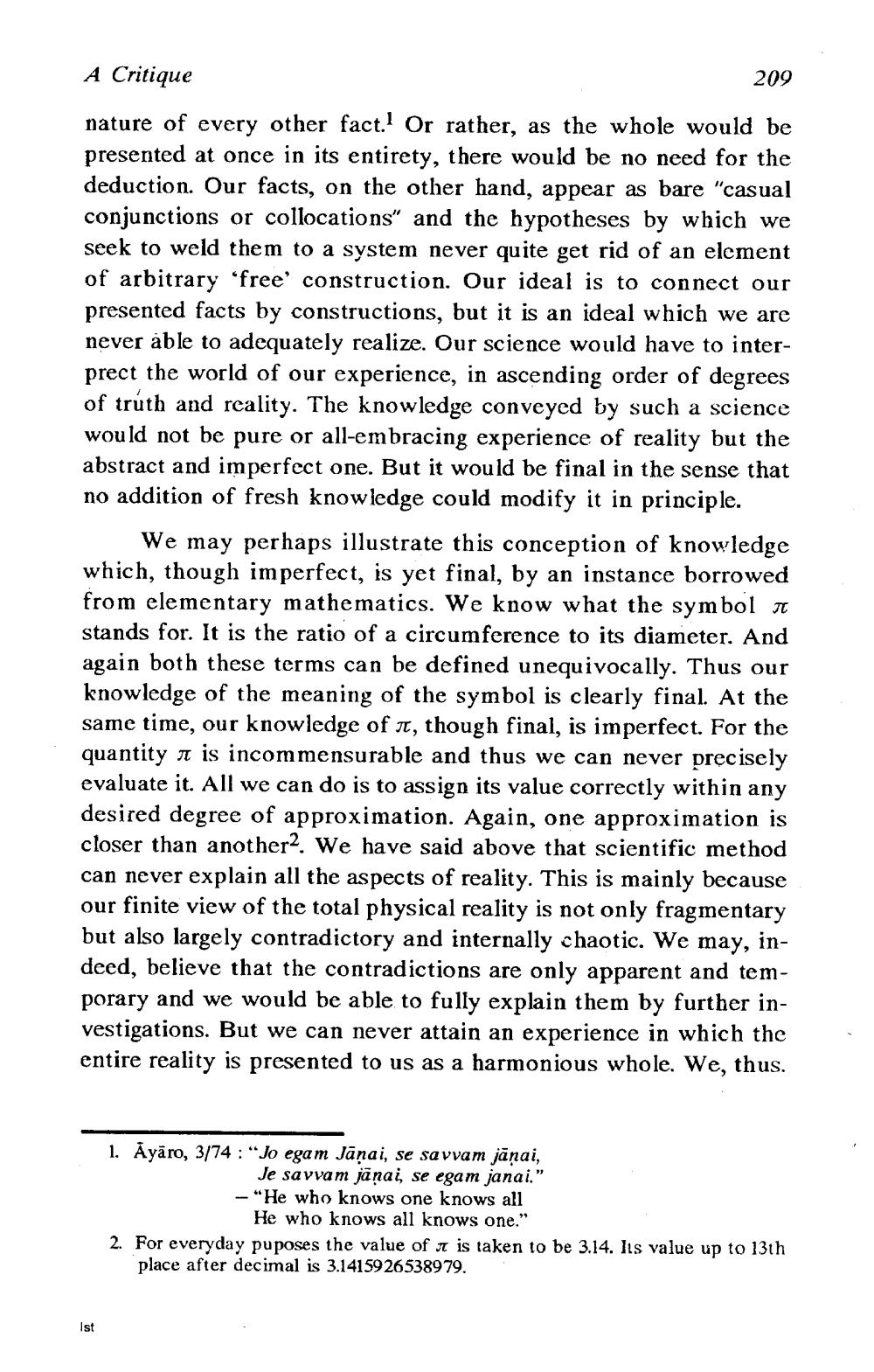________________
A Critique
209
nature of every other fact. Or rather, as the whole would be presented at once in its entirety, there would be no need for the deduction. Our facts, on the other hand, appear as bare "casual conjunctions or collocations" and the hypotheses by which we seek to weld them to a system never quite get rid of an element of arbitrary 'free' construction. Our ideal is to connect our presented facts by constructions, but it is an ideal which we are never able to adequately realize. Our science would have to interprect the world of our experience, in ascending order of degrees of truth and reality. The knowledge conveyed by such a science would not be pure or all-embracing experience of reality but the abstract and imperfect one. But it would be final in the sense that no addition of fresh knowledge could modify it in principle.
We may perhaps illustrate this conception of knowledge which, though imperfect, is yet final, by an instance borrowed from elementary mathematics. We know what the symbol л stands for. It is the ratio of a circumference to its diameter. And again both these terms can be defined unequivocally. Thus our knowledge of the meaning of the symbol is clearly final. At the same time, our knowledge of л, though final, is imperfect. For the quantity is incommensurable and thus we can never precisely evaluate it. All we can do is to assign its value correctly within any desired degree of approximation. Again, one approximation is closer than another2. We have said above that scientific method can never explain all the aspects of reality. This is mainly because our finite view of the total physical reality is not only fragmentary but also largely contradictory and internally chaotic. We may, indeed, believe that the contradictions are only apparent and temporary and we would be able to fully explain them by further investigations. But we can never attain an experience in which the entire reality is presented to us as a harmonious whole. We, thus.
Ist
1. Ayaro, 3/74: "Jo egam Jāņai, se savvam jāņai,
Je savvam janai, se egam janai."
-"He who knows one knows all
He who knows all knows one."
2. For everyday puposes the value of л is taken to be 3.14. Its value up to 13th place after decimal is 3.1415926538979.




